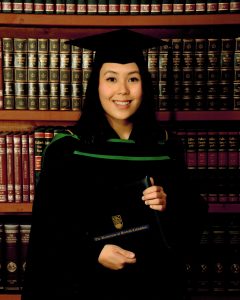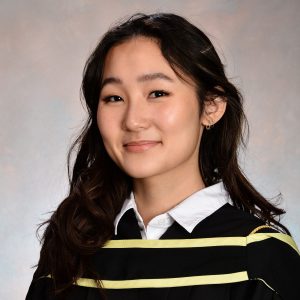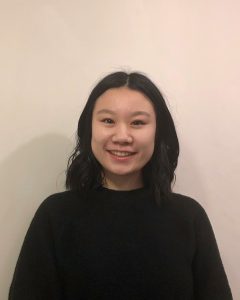UBC students win global competition for Indigenous Food Insecurity project
June 14, 2021 – Three UBC students won first place in the global competition – Map the System! The global competition is hosted by University of Oxford and it encourages a systems approach to understanding complex social and environmental problems.
This is UBC’s first Map the System win and undergraduate students – Anika Cheng, Cathy Zhu and Emily Chau – were supported by UBC’s Centre for Community Engaged Learning (CCEL) in preparing for the competition.
- Anika Cheng
- Cathy Zhu
- Emily Chau
Cheng, Zhu and Chau evaluated food insecurity for Indigenous Peoples living in B.C.’s urban settings. One in three households experiencing food insecurity in the province’s urban populations identify as Indigenous. Indigenous households have one of the highest rates of food insecurity among all ethnic groups.
“It is a huge privilege for me, a non-Indigenous settler, to have the opportunity to shed light on the challenge of urban Indigenous food insecurity,” says Zhu.
“Throughout this process, I was welcomed with open arms by the Indigenous communities we worked with, Unique Get Together Society (UGTS), UBC CCEL, Dr. Hammond from FNH 473, Pam Garcia, and my lovely teammates Anika and Emily. I am so honoured to represent UBC on a global scale and heart-warmed to be able to give back to the Indigenous community through UGTS by donating a portion of our prize fund!”
There are 198 distinct First Nations groups in B.C. and the students looked system-wide at the issues and ways of moving forward. The students worked closely with community partner UGTS, an Indigenous-led non-profit in understanding the issues more deeply.
The mapping they did of complex policies in place, involvement of government and social organizations, and possible ways to move forward led them to win the national Map the System round in May. In early June, they moved through semi-finals and into the final round, where they competed against students from around the world.
To help drive systemic change, the students highlighted these factors in their presentation Unique Get Together Society and Urban Indigenous Food Insecurity in B.C.:
- Stakeholders – co-creation and self-determination with Indigenous-led views are needed
- Government & Policy – identify disparities and recognize land rights
- Creating space and welcoming First Nations in positions of power, agency and government
- Adopting Indigenous Ways of Knowing – for instance, the Canada Food Guide ignores Indigenous foods and the connection between food and their culture
View the full presentation Map the Systems here:
The students first met and initiated this project through course FNH 473: Applied Public Health Nutrition, led by Gail Hammond, LFS Assistant Professor of Teaching, and supported by Pam Garcia, who was Community Relations Coordinator.
Two students are in Land and Food Systems: Zhu graduated from the Food, Nutrition and Health program this year and will be entering Nursing; and, Chau is a Dietetics student who will be starting the Dietetics practicum shortly. Cheng studied Kinesiology and will be pursuing a Master of Occupational Therapy.
Cheng’s takeaways from the competition include a greater appreciation of the Indigenous community supports in place, and a new approach to creating more holistic and impactful solutions.
“Through the project, I have had the wonderful opportunity to learn about current initiatives and programs here in the Lower Mainland and meet community members that have been making an impact on urban Indigenous food insecurity,” Cheng said. “My team and I have learned the importance of systems thinking and the role it plays in addressing the complex social issues that exist today, and will carry our learning forward into our future professions.”
Tagged with: 2021, Equity Diversity Inclusion and Indigeneity, Food Nutrition and Health


